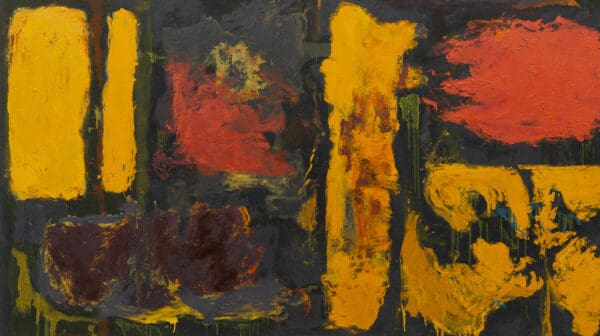
Making Space at the Table
NAP Contemporary’s group show, The Elephant Table, platforms six artists and voices—creating chaos, connection and conversation.
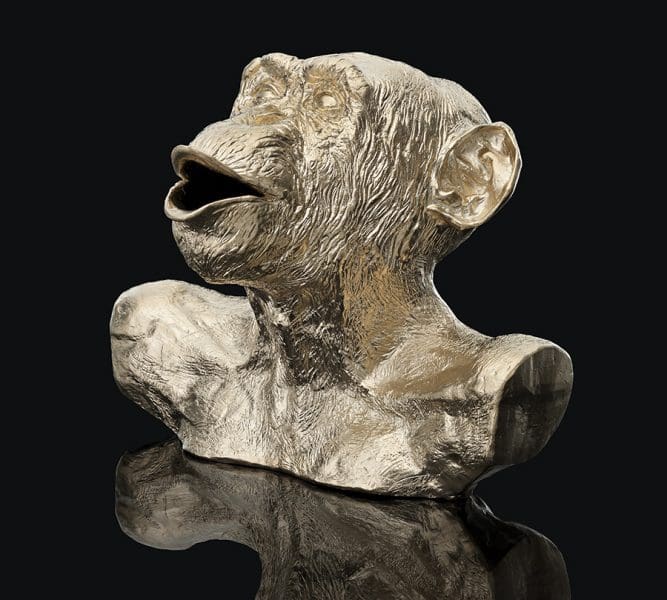
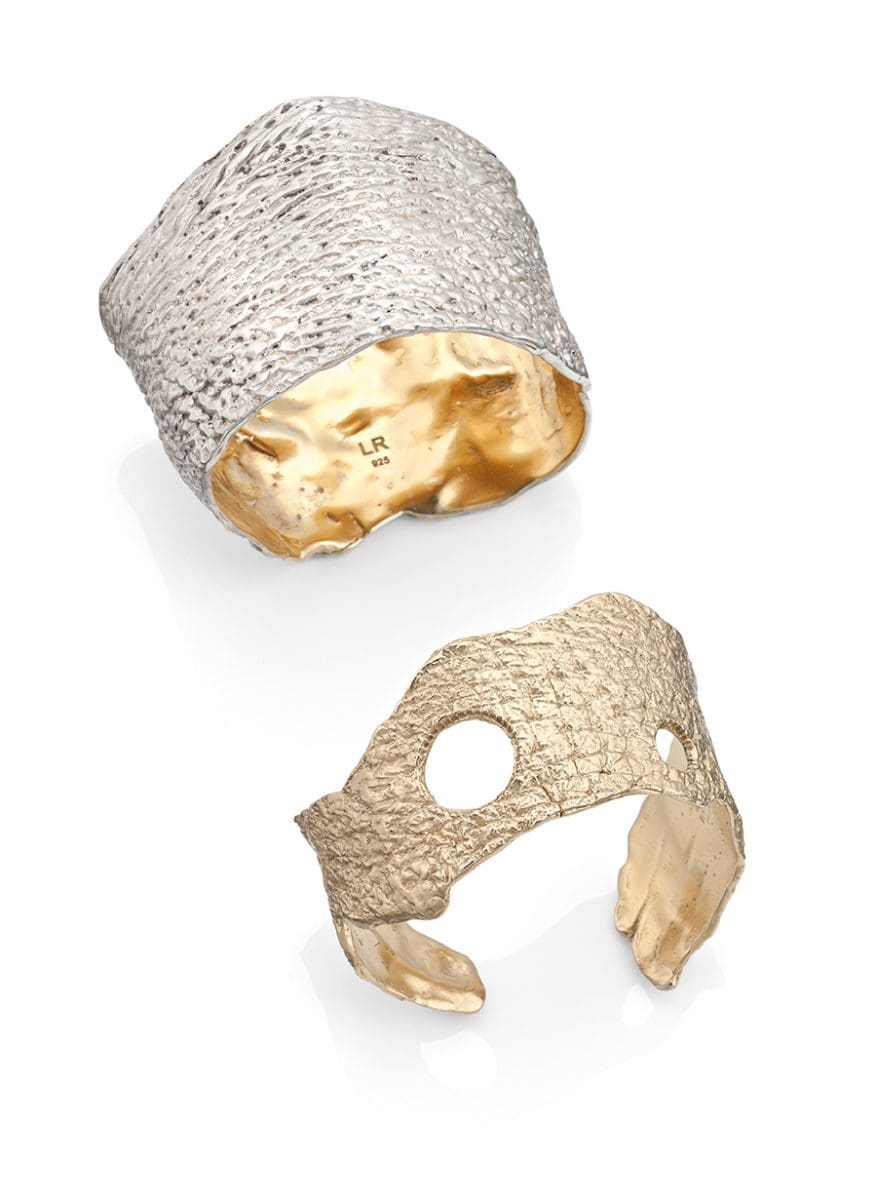
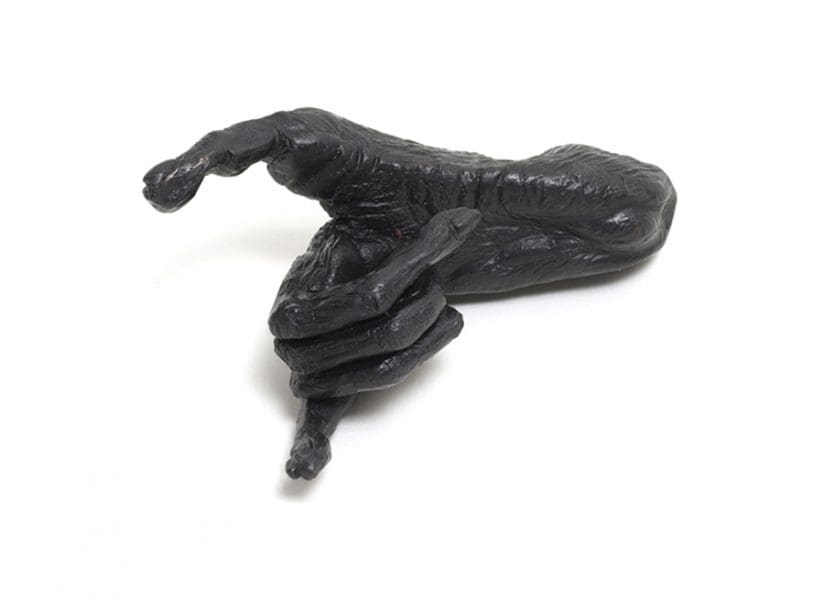
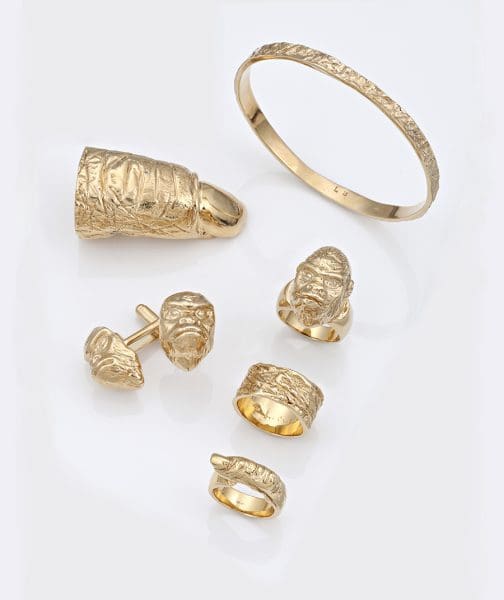
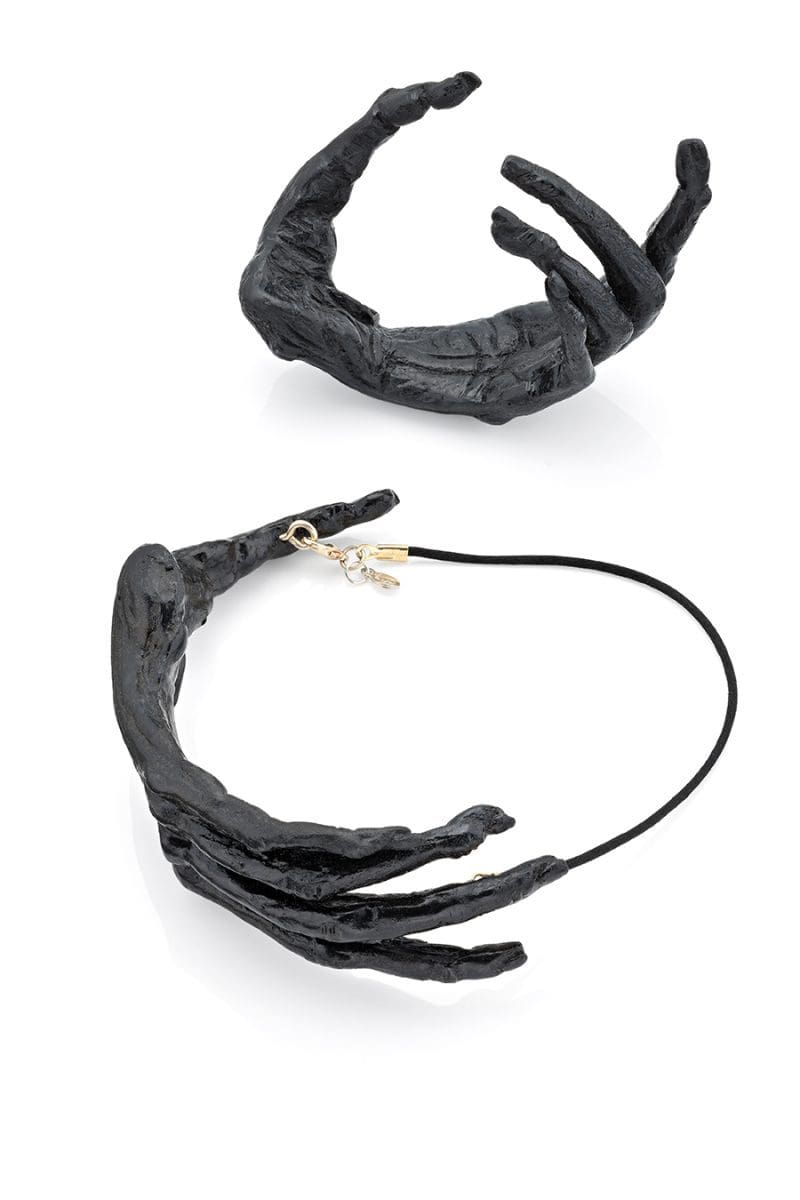
For the artist Lisa Roet, looking at apes is like looking in the mirror. But not just any mirror. For her the reflection we see when we gaze at our simian cousins is both murky and revealing; it tells us something about our inner selves and our broader culture. And after more than two decades of investigation, Roet knows that there is more to learn.
“The ape and the monkey are a ‘mirror’ to ourselves yet they also reflect ‘the other’. This fear of the other, widely experienced at present, is a phenomenon that affects society whenever great changes occur. I find my subject, while often polarising, offers a great vehicle for expressing changes in society and how we see ourselves in this contemporary world.”
More than 98% of our DNA is identical to that of apes. This factoid is often repeated, but Roet’s work invites us to actually think carefully about the implications of our genetic bond.
In her solo show Skins, Roet uses the miniature power of jewellery to draw attention to simian-human similarities. She presents a series of jewels cast from impressions of real orangutan and gorilla skin. Worn on the human body, skin-on-skin, Roet says that these jewels “create a connection between humans and our closest animal relative.”
Skins also features White Ape, 2011, the massive bust of a chimpanzee, some three metres high. This monumental sculpture seems like a memorial tribute to a fallen leader, but whether it honours a minor potentate or a beneficent dignitary is not clear. The social realist style and awe inspiring scale would suit either. In this way, Roet highlights the fact that apes, like us, are complex: neither all good nor all bad.
Skins
Lisa Roet
Hugo Michell Gallery
2 February – 25 February